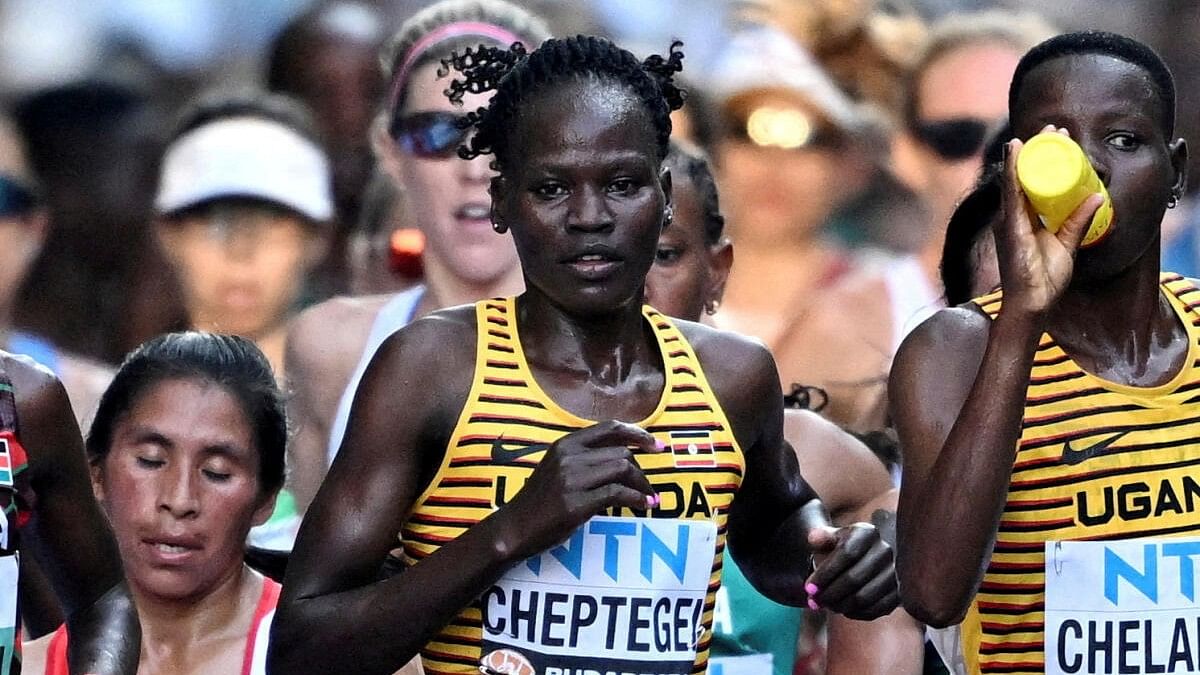
Ugandan Olympic runner Rebecca Cheptegei, who died after being set on fire by Dickson Ndiema Marangach.
Credit: Reuters File Photo
The Ugandan man who was accused of killing Rebecca Cheptegei, his partner and Olympic long-distance runner, by dousing her with gasoline and setting her on fire, died Monday evening from burns he sustained in the same attack.
The man, Dickson Ndiema Marangach, 32, was pronounced dead at Moi Teaching and Referral Hospital, the same facility in Eldoret, Kenya, where Cheptegei died last week, according to a statement from the hospital. The hospital said that he had developed respiratory failure after sustaining severe airway burns.
Cheptegei, who finished 44th in the marathon at the Paris Olympics this summer, was in a relationship with Ndiema, and the pair had fought over an unknown matter, according to the Kenyan police. He entered her home in Kenya on Sept. 1, poured gasoline on her and set her on fire.
The fire burned most of her body, and she was hospitalized in critical condition before dying Thursday. Ndiema sustained burns on about 40% of his own body in the attack and was treated at the same hospital. The police, who were investigating the assault, had planned to charge him with murder if he recovered.
Tony Sabila, a spokesperson for Cheptegei's family, said that he had received a call on Tuesday morning from the hospital informing him of Ndiema's death. The news was still being shared with the rest of Cheptegei's family, he said.
Cheptegei's death prompted shock and fury around the world, especially from women's rights campaigns who had long raised alarm about the killings of women in Kenya and other African nations.
Africa had the highest rate of gender-based killings of women of any continent in 2022, the United Nations has reported, estimating that 20,000 women were killed there, though the true figure may be even higher.
World Athletics, the international governing body that oversees distance running, said in a statement after her death that it was deeply saddened to learn that she had died "as a result of an alleged domestic abuse attack."
Joseph Cheptegei, her father, said outside the hospital on the day of her death that he had reported concerns to the police that Ndiema had been intimidating his daughter, accusing them of "taking the matter for granted."
Organizers for the Paralympic Games held a tribute to Cheptegei in Paris on Sunday after the competition's marathon races. Paris will name a sports venue in honor of the Ugandan runner, according to the city's mayor, Anne Hidalgo. "Paris will not forget her," she said.
Other Kenyan athletes have been victims of femicide, a term used for the killing of women and girls. In 2021, Agnes Jebet Tirop, a Kenyan star runner who set a world record in the 10-kilometer race, was stabbed to death in her home, and her husband was charged with her murder. A year later, Damaris Muthee Mutua, a Kenyan-born athlete who competed for Bahrain, was found strangled in Iten, Kenya.